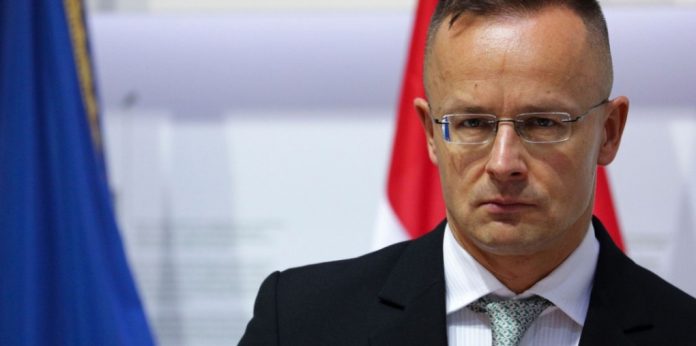Hungarian Foreign Minister Péter Szijjártó said that Hungary’s gas supply strategy was determined solely by infrastructure, Euractiv reports.
At a conference in Bucharest on Wednesday, the minister emphasised that Budapest rejected the view that political issues could influence gas purchases.
The country’s gas procurement is limited by the existing infrastructure. The Hungarian Foreign Minister said at the Romanian International Gas Conference 2023:
You can’t transport gas in a backpack.
Szijjártó believes one of the reasons why Europe is facing energy supply problems is because the issue has been turned into an ideology. Hungary faces obstacles from Brussels and some EU member states unwilling to increase the capacity of the transport network in the region, despite the demand to diversify gas sources.
Hungary would like to import large volumes of natural gas from non-Russian sources such as Turkey, Azerbaijan or Qatar. However, this limited transport capacity in south-eastern Europe makes this impossible. Péter Szijjártó said:
Brussels opposes expanding gas pipelines in the region, claiming natural gas will become obsolete in the future. We don’t agree. The Commission’s refusal to finance new gas pipelines affects both Hungary and Romania’s interests.
The Romanian Energy Minister Sebastian Burduja replied, adding that the Eastern Europeans must be “more assertive” in negotiations with Brussels:
Indeed, we must remove politics from energy, but we cannot remove geopolitics.
However, he emphasised that the war in Ukraine had created the conditions for ending the EU’s dependence on Russian gas.
Ion Sterian, CEO of Transgaz, the Romanian state-owned operator of the national gas transmission system, also criticised the European Commission for denying funding from the EU Modernisation Fund for Romanian pipeline projects. He questioned the decision, especially with regard to the infrastructure needed for future hydrogen gas plants.
Szijjártó emphasised the need for cooperation between South-Eastern and Central European countries to remove regional bottlenecks and increase the capacity of interconnectors and gas pipelines. In this context, he criticised Bulgaria for imposing a tax on Russian gas, saying that this could jeopardise the security of gas supplies to Hungary and Serbia.
